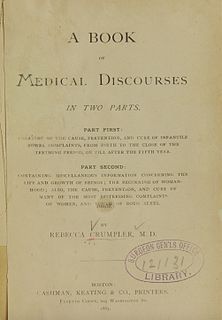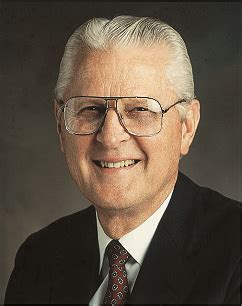A Quote by Rebecca Lee Crumpler
Selfish prudence is too often allowed to come between duty and human life.
Related Quotes
The step between prudence and paranoia is short and steep. Prudence wears a seat belt. Paranoia avoids cars. Prudence washes with soap. Paranoia avoids human contact. Prudence saves for old age. Paranoia hoards even trash. Prudence prepares and plans, paranoia panics. Prudence calculates the risk and takes the plunge. Paranoia never enters the water.
Can the state, which represents the whole of society and has the duty of protecting society, fulfill that duty by lowering itself to the level of the murderer, and treating him as he treated others? The forfeiture of life is too absolute, too irreversible, for one human being to inflict it on another, even when backed by legal process.
In times of widespread chaos and confusion, it has been the duty of more advanced human beings--artists, scientists, clowns and philosophers--to create order. In times such as ours, however, when there is too much order, too much management, too much programming and control, it becomes the duty of superior men and women to fling their favorite monkey wrenches into the machinery. To relive the repression of the human spirit, they must sow doubt and disruption.
The dictionary describes a selfish person as one who is 'concerned excessively or exclusively with oneself: seeking pleasure or well-being without regard for others.' May we add, a selfish person is often one who refers to 'I,' 'me,' and 'mine' rather than to 'we,' 'ours,' 'yours,' or 'theirs.' This person is anxious to be in the limelight, to be on center stage in life's little dramas. He or she may be a poor listener, or a conversation monopolizer. Selfishness is the great unknown sin. No selfish person ever thought himself to be selfish.
No doubt there are some who, when confronted with a line of mathematical symbols, however simply presented, can only see the face of a stern parent or teacher who tried to force into them a non-comprehending parrot-like apparent competence--a duty and a duty alone--and no hint of magic or beauty of the subject might be allowed to come through.






































